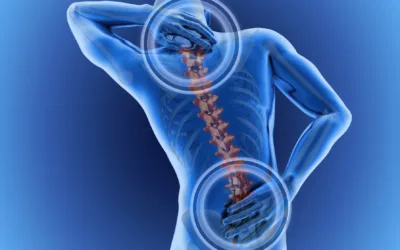Surprisingly, chronic pain affects around 20% of adults globally, leading many to seek effective long-term relief options. When comparing homeopathy and traditional painkillers, the debate intensifies over which offers superior and sustainable solutions. While traditional painkillers provide quick relief by targeting symptoms directly, homeopathy focuses on addressing underlying causes for lasting benefits. Understanding the nuances between these two approaches is crucial in determining the most suitable path toward managing persistent discomfort effectively.
Comparing Homeopathy And Traditional Painkillers For Long-Term Relief
Different Approaches
Homeopathy focuses on natural remedies derived from plants, minerals, or animals to stimulate the body’s healing process. On the other hand, traditional painkillers like ibuprofen or acetaminophen work by blocking pain signals in the brain. The relative difference lies in how each method addresses pain relief: one by enhancing the body’s own healing mechanisms and the other by directly alleviating symptoms.
Homeopathy aims to treat the root cause of pain rather than just masking it temporarily as traditional painkillers do. For example, Arnica montana is commonly used in homeopathic remedies for muscle soreness and bruises due to its anti-inflammatory properties. In contrast, opioids are a type of traditional painkiller that can provide quick but short-term relief from severe pain.
Pros And Cons
Pros:
- Natural Ingredients: Homeopathic remedies often use natural ingredients that may have fewer side effects compared to synthetic drugs.
- Individualized Treatment: Homeopathy considers each person’s unique symptoms and overall health when prescribing treatments.
Cons:
- Scientific Evidence: Critics argue that homeopathy lacks scientific evidence to support its effectiveness.
- Delayed Relief: Traditional painkillers typically provide faster relief compared to homeopathic remedies for acute conditions.
When deciding between homeopathy and traditional painkillers for long-term relief, considering individual preferences and the nature of the condition is essential. While some people prefer natural approaches offered by homeopathy due to concerns about side effects associated with conventional medications, others may opt for traditional painkillers seeking immediate symptom relief without focusing on addressing underlying issues causing the discomfort.
Understanding Homeopathy And Its Role In Pain Relief
Holistic Approach
Homeopathy, a holistic approach focuses on stimulating the body’s natural healing abilities. It aims to treat the individual as a whole, considering physical, mental, and emotional aspects. By addressing all these elements simultaneously, homeopathy seeks to provide comprehensive healing.
Homeopathic remedies are derived from natural substances, such as plants and minerals. These remedies are prepared through a process of dilution and succussion to enhance their effectiveness. For instance, Arnica montana is commonly used in homeopathy for pain relief due to its anti-inflammatory properties.
Individualized Treatment
One key aspect of homeopathy is its emphasis on treating each person uniquely. Rather than focusing solely on the symptoms or specific ailment like traditional medicine does with painkillers, homeopaths consider the complete picture of an individual’s health. This personalized approach allows for tailored treatment plans that cater to each person’s specific needs.
Pros:
- Personalized treatment based on individual needs
- Holistic approach considers physical, mental, and emotional aspects
Cons:
- Effectiveness varies from person to person
- May require patience as results can be gradual
Effectiveness Of Homeopathic Remedies For Pain Management
Varied Effectiveness
Some individuals swear by homeopathic remedies for managing chronic pain. The efficacy of these treatments can differ greatly from person to person, as well as depending on the specific ailment being treated. For example, while one individual may find relief from arthritis pain using a particular homeopathic remedy, another person with migraines might not experience the same level of effectiveness.
Homeopathy’s personalized approach means that what works for one person might not work for another. This variability in effectiveness is a key characteristic of homeopathic treatments and underscores the importance of finding the right remedy tailored to an individual’s unique symptoms and constitution.
Ongoing Research
Research into the efficacy of homeopathic remedies for pain management continues to evolve. Scientists are conducting studies to better understand how these remedies work and their potential benefits in alleviating various types of pain. While some studies have shown promising results in favor of homeopathy, others remain inconclusive or suggest limited effectiveness.
The ongoing research aims to provide more concrete evidence regarding which conditions respond best to homeopathic treatments and how they compare against traditional painkillers in terms of long-term relief.
The Science Behind Homeopathy’s Role In Managing Chronic Pain
Principle Of “Like Cures Like”
Homeopathy operates on the principle that substances causing symptoms in healthy individuals can treat similar symptoms in sick people. For instance, a homeopathic remedy for insomnia might involve using a highly diluted caffeine solution to help induce sleep. This concept is known as “like cures like.”
Scientific studies have yet to fully validate this principle, leaving it somewhat controversial among medical professionals and researchers.
Dilution And Potentization Process
One of the fundamental processes in preparing homeopathic remedies is dilution and potentization. This involves repeatedly diluting an active ingredient with water or alcohol and vigorously shaking it (succussion). The more diluted the substance becomes, the more potent its healing properties are believed to be.
While some argue that extreme dilutions render these remedies mere placebos, proponents claim that water retains a “memory” of the original substance even after countless dilutions.
Limited Scientific Studies On Homeopathy’s Effects On Pain
Despite its long history of use for pain management, scientific research into homeopathy’s mechanisms for pain relief remains limited. While some studies suggest potential benefits, such as reduced pain intensity or improved quality of life in chronic pain patients using homeopathic treatments, conclusive evidence is lacking.
The lack of robust scientific data makes it challenging to definitively prove homeopathy’s efficacy compared to traditional painkillers over the long term.
Addressing Long-Term Pain: Homeopathy And Conventional Medicine Compared
Immediate Relief VS. Underlying Causes
Traditional painkillers offer quick relief by targeting symptoms, but prolonged use can lead to side effects. On the other hand, homeopathy delves into the root causes of pain rather than just masking it with temporary solutions. For instance, while conventional medicine might alleviate a headache momentarily, homeopathic remedies aim to understand why the headache occurs in the first place.
Homeopathy’s approach is akin to fixing a leaky pipe by addressing the source of the problem instead of merely mopping up the water each time it spills over. By focusing on understanding what triggers pain or discomfort at its core, homeopathy strives for long-term relief rather than short-lived comfort.
Integrating Both Methods
For some individuals dealing with chronic pain issues, finding relief may not be as straightforward as choosing between either traditional painkillers or homeopathy. Combining both approaches could provide a more comprehensive solution tailored to individual needs.
Pros and Cons
Traditional Painkillers:
- Pros: Immediate relief.
- Cons: Potential side effects with long-term use.
Homeopathy:
- Pros: Focuses on underlying causes.
- Cons: Might take longer to show results compared to conventional medicine.
When faced with persistent discomfort or recurring pains that traditional medications seem unable to fully address without side effects looming in the background, exploring alternative options like homeopathy might offer new possibilities for managing long-term conditions effectively. It’s about finding a balance between immediate symptomatic relief and sustainable healing processes that tackle issues from their very origin.
Navigating The Side Effects And Warnings Of Homeopathic Treatments For Chronic Pain
Safety And Minimal Risks
Homeopathic treatments are generally safe, with minimal risk of side effects. This is a significant advantage compared to traditional painkillers, which often come with a range of potential adverse reactions. For individuals seeking long-term relief from chronic pain, the safety profile of homeopathy can be reassuring.
Pros:
- Minimal risk of side effects
- Suitable for individuals sensitive to conventional medications
Cons:
- Efficacy may vary from person to person
Consulting Qualified Practitioners
Consulting a qualified homeopathic practitioner is crucial when considering homeopathic treatments for chronic pain. These professionals have the expertise to recommend appropriate remedies based on individual symptoms and health conditions. Proper dosage and administration are essential factors that can impact treatment effectiveness.
- Seek guidance from qualified practitioners.
- Ensure proper dosage and administration.
Interaction With Medications
Homeopathic remedies may interact with certain medications, underscoring the importance of informing healthcare providers about their use. This communication ensures that potential interactions or contraindications are identified early on, preventing any adverse effects resulting from combining homeopathy with other prescribed drugs.

Consulting With Homeopathic Providers For Long-Term Pain Management
Tailored Treatment Plans
Consulting a qualified homeopathic provider is essential for personalized treatment plans aimed at long-term pain management. Unlike traditional painkillers, homeopathy focuses on individual symptoms, medical history, and lifestyle factors to tailor remedies specifically to the patient’s needs. This tailored approach can lead to more effective and sustainable relief compared to generic treatments.
Homeopathic providers take into account various aspects of a patient’s health before prescribing remedies. For instance, if someone has chronic back pain aggravated by cold weather and relieved by heat, a homeopath might recommend a specific remedy that aligns with these symptoms. This level of personalization sets homeopathy apart from conventional medicine where one-size-fits-all approaches are often utilized.
Regular Monitoring And Adjustments
Regular consultations with a homeopathic provider play a crucial role in long-term pain management. These sessions allow the provider to monitor the patient’s progress closely and make any necessary adjustments to the treatment plan. By keeping short intervals between consultations, changes in symptoms or overall health can be addressed promptly.
Pros:
- Personalized treatment plans
- Focus on individual symptoms
Cons:
- Lack of scientific evidence
- Time-consuming process
In contrast to traditional painkillers that may provide immediate relief but mask underlying issues, homeopathy aims for sustained improvement by addressing the root cause of the pain gradually over time through regular monitoring and adjustments.
Collaborative Approach
Collaborating with a homeopathic provider fosters an open dialogue about your condition and how different remedies are impacting your well-being. This collaborative approach empowers patients as active participants in their healing journey rather than passive recipients of medication.
- Schedule regular consultations with your homeopathic provider every few weeks.
- Keep track of any changes in your symptoms or overall health between appointments.
- Be open about how you feel physically and emotionally during these consultations.
- Work together with your provider to make informed decisions about adjusting your treatment plan when needed.
Understanding The Safety Of Homeopathic Remedies For Long-Term Pain Relief
Regulation And Quality Assurance
Homeopathic remedies undergo strict regulation by health authorities to ensure safety and quality. This regulatory oversight helps maintain standards in production, ensuring that these remedies are safe for consumption. For individuals seeking long-term pain relief through homeopathy, this regulatory framework offers a level of assurance regarding the safety of the products they are using.
Homeopathic remedies follow specific guidelines on dosages and usage recommendations to maximize their effectiveness while minimizing risks. By adhering strictly to these guidelines, individuals can enhance the potential benefits of homeopathic treatments for long-term pain relief. The precise dosages recommended aim to provide therapeutic effects without compromising safety, emphasizing the importance of following instructions diligently.
Prompt Medical Attention
In cases where individuals experience adverse reactions while using homeopathic remedies for pain relief, seeking medical advice promptly is crucial. While homeopathy is generally considered safe when used correctly, any unexpected symptoms or reactions should not be ignored. Consulting with healthcare professionals can help address concerns efficiently and ensure appropriate measures are taken if needed.
- Regulation ensures safety
- Adherence to dosage guidelines maximizes benefits
- Prompt medical attention essential for adverse reactions
Choosing A Qualified And Registered Practitioner For Long-Term Pain Relief Through Homeopathy
Selection Criteria For Homeopathic Practitioners
When seeking long-term pain relief through homeopathy, it is essential to find a homeopath who is registered with a recognized professional society. This ensures that the practitioner adheres to established standards and guidelines in their practice. Consider the experience, qualifications, and reputation of the homeopathic practitioner.
Personal recommendations or referrals from trusted sources can be invaluable in selecting a qualified homeopath. Hearing about someone’s positive experience firsthand can instill confidence in your choice of practitioner. Moreover, online reviews or testimonials from previous patients can offer insights into the effectiveness and professionalism of the work done by the homeopath.
Benefits Of Choosing A Qualified Homeopathic Practitioner
Opting for an experienced and reputable homeopath increases the likelihood of achieving favorable results in long-term pain relief. These practitioners are well-versed in tailoring treatments to individual needs based on thorough assessments. By following personalized treatment plans diligently under their guidance, patients may experience significant improvements over time.
Pros:
- Personalized treatment plans tailored to individual needs
- Higher chances of achieving favorable results due to expertise and experience
- Adherence to established standards ensuring quality care
Cons:
- Limited availability of registered practitioners in some areas
- Costs associated with consultations and treatments may vary
Summary
You’ve delved into the realms of homeopathy and traditional painkillers, weighing their efficacy for long-term relief. From understanding how homeopathy works to navigating its side effects and consulting with providers, you’ve gained insights into this alternative approach. It’s crucial to consider the science behind homeopathy’s role in managing chronic pain and the safety aspects associated with it. As you ponder between homeopathy and conventional medicine, remember to choose a qualified practitioner for optimal long-term pain relief tailored to your needs. Embrace this journey of exploration and discovery as you seek the best path toward sustained pain management through informed decisions.
Frequently Asked Questions
1. Is Homeopathy A Better Long-Term Solution For Pain Relief Compared To Traditional Painkillers?
Homeopathy and traditional painkillers offer different approaches. Homeopathy focuses on holistic healing, aiming to address the root cause of pain over time. Traditional painkillers provide immediate relief but may not target underlying issues.
2. Are There Any Potential Side Effects Associated With Using Homeopathic Remedies For Chronic Pain Management?
While homeopathic remedies are generally considered safe, some individuals may experience mild reactions. It’s crucial to consult with a qualified practitioner before starting any treatment. Always disclose any ongoing medications or health conditions for personalized guidance.
3. How Can I Ensure The Safety Of Using Homeopathic Remedies For Long-Term Pain Relief?
To ensure safety, choose registered practitioners who have expertise in homeopathy. Discuss your medical history, current medications, and concerns openly during consultations. Adhere to recommended dosages and follow-up appointments diligently for optimal results without compromising safety.
4. What Role Does Science Play In Supporting The Effectiveness Of Homeopathic Treatments For Managing Chronic Pain?
Scientific research on homeopathy’s efficacy is ongoing but limited. Some studies suggest positive outcomes while others remain skeptical due to the nature of highly diluted substances used in homeopathic remedies. Consulting both scientific evidence and experienced practitioners can provide comprehensive insights.
5. How Do I Navigate Between Choosing Homeopathy Or Conventional Medicine For Addressing Long-Term Chronic Pain?
The decision between homeopathy and conventional medicine depends on personal preferences, beliefs, and responses to treatments. Consider consulting healthcare professionals from both fields to explore options tailored to your needs. Integrating various modalities under expert guidance can optimize long-term pain management strategies.

Exploring the Psychological Impact of Pain Management Choices
Mental Resilience and Pain Perception
The choice between homeopathy and traditional painkillers can significantly influence a person’s mental resilience toward pain. Homeopathy often encourages patients to engage with their symptoms, promoting a sense of control and understanding of their condition. In contrast, traditional painkillers may lead to a passive approach to pain management, where the focus is solely on symptom suppression without addressing the emotional or psychological factors tied to chronic pain.
Stress Reduction Through Holistic Practices
Homeopathy’s emphasis on individualized treatment often incorporates lifestyle and stress management techniques. This can complement the physical treatment of pain by addressing stress-related triggers that may exacerbate symptoms. In contrast, traditional painkillers typically do not include these broader therapeutic elements, potentially overlooking the stress-pain connection that many patients experience. By integrating mindfulness and relaxation practices with homeopathy, individuals may achieve a more balanced approach to long-term relief.
Empowerment Through Informed Choices
A notable benefit of homeopathy is the empowerment it offers patients through education about their symptoms and the natural remedies used. This active participation can foster a deeper understanding of the body’s healing mechanisms, contrasting with the often passive reliance on prescribed painkillers. Over time, this empowerment may enhance adherence to treatment plans and promote sustained relief.
Harnessing The Power Of Homeopathy In Pain Management: Experience Relief And Healing With MedicinEvolution’s Innovative Approach!
Are you grappling with chronic pain, sports injuries, or seeking to enhance your overall well-being? MedicinEvolution stands at the forefront of integrating homeopathy with pain management techniques to guide you toward a state of improved health and comfort. By embracing the principles of homeopathy, MedicinEvolution addresses the underlying causes of your pain, promoting a natural and holistic recovery process. Wave goodbye to the challenges of chronic discomfort, sports-related injuries, and the repetitive stress that impedes your daily activities—as MedicinEvolution taps into the unique needs of your body, leading you to significant relief and healing. Their carefully formulated homeopathic treatments are designed to shift you away from the pain and limitations that constrain your quality of life.
If you’re battling with persistent pain, injuries, or obstacles to achieving optimal health, MedicinEvolution’s specialized approach, grounded in the harmony of homeopathy and pain management, is specifically crafted for you. Don’t allow the struggles of chronic pain or injury to set the limits of your well-being—take the step forward and schedule your consultation with MedicinEvolution today! Embark on a journey with their homeopathy-centered treatments and start moving toward a more pain-free, resilient, and health-enhanced life. Your body and mind, liberated from the grips of pain, will be grateful for the transformation!





